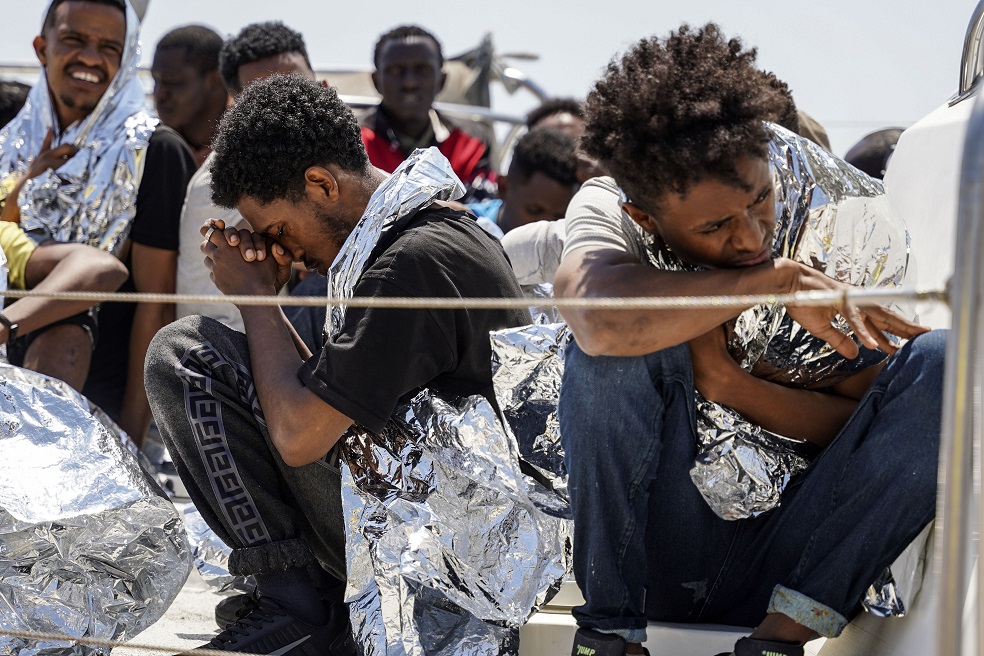Checks on the Czech-Slovak border have been reinstated as of Thursday due to the increasing flow of migrants. According to the Czech chairman of the parliamentary security committee, Pavel Žáček, they had to be reinstated because of non-compliance with readmission agreements between states, which caused the Czech facilities for migrants to be overcrowded. According to security committee member Radek Koten, this measure also came too late.
Slovak Prime Minister Eduard Heger criticized the steps taken by the Czech Republic. “The work on the part of the Czech Republic has failed a little here,” he said on Wednesday.
The primary reason for the restoration of border controls is the excessive influx of migrants, mainly from Turkey, who reach the Czech Republic via the so-called Balkan route. To get to the Czech Republic, they usually must cross the borders of Hungary and Slovakia, which are currently not guarded in any way. In addition, according to the member of the security committee, Radek Koten of the opposition Freedom and Direct Democracy movement, and the chairman of the security committee, Pavel Žaček of the ruling Civic Democrats, the countries do not comply with readmission agreements. In the case of Slovakia, that means the country does not accept back migrants who cross the Czech-Slovak border.
“We detain the migrants somewhere in the interior of the Czech Republic, and then Slovakia will not accept them back, so the problem is the non-compliance with the agreements between the Czech and the Slovak Republic,” Koten said during a Czech Television broadcast.
“The readmission agreements with the partners to the east of us do not work because, as we know, the migrants mainly come from Turkey via the Balkan route. They simply cross several Schengen borders, and they should be registered there, they should be stopped there, but they get to the Czech Republic and are trying to continue to Germany,” said the chairman of the security committee. “Following the agreement with Germany, we are taking this measure to force our partners to comply with those agreements that are valid within the Schengen framework, within the European Union,” he added.
The government defends its decision-making
According to the opposition, the government introduced these controls too late, thinks Koten. Žaček, however, believes the government fulfilled all agreements “to the letter” at a time when other states did not address them. According to him, the problem is primarily that Hungary cannot hold migrants and sends them on, and Slovakia, according to him, does the same.
“We proceeded exactly according to the valid agreements, and we tried to record, register, photograph, and take all the identifiers needed for their eventual stay in our area, and then we filled our facility for migrants with them,” added Žáček. Although Hungary has erected a high fence on parts of its borders and created border police, it is still not enough.
“Now it’s up to our partners in the east. Slovaks must take similar measures so that the wave stops at the borders it is supposed to stop at so those issues that we are dealing with here get solved at the first Schengen border,” said Žáček on Czech Television. Austria will introduce the same measure as the Czech Republic from Thursday on the border with Slovakia, as it wants to prevent smugglers from bypassing checks at the Czech border by going through Austria.
Slovak Prime Minister Eduard Heger criticized the Czech Republic’s decision to introduce controls. According to him, the problem is ensuring the protection of the external borders of the Schengen area in Hungary.
“The work on the part of the Czech Republic failed a little here. That’s not how it’s done. It needs to be solved with communication, not with such surprises. The step taken by the Czech Republic and implemented by other countries is not correct because it goes against the principles of Schengen,” Heger told reporters.
Slovak Interior Minister Roman Mikulec has proposed helping Hungary secure its external borders and wants to negotiate with neighboring countries in this context. According to him, Slovakia will introduce border controls with Hungary in case of a disagreement on the measures.






